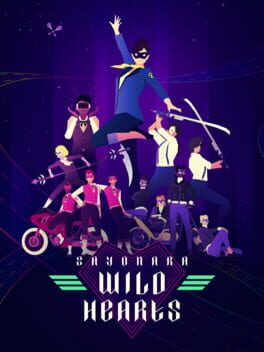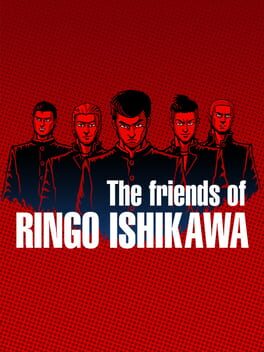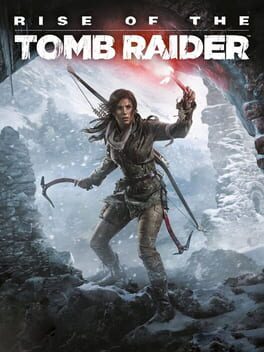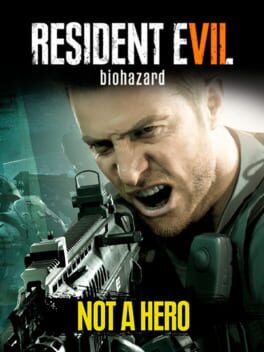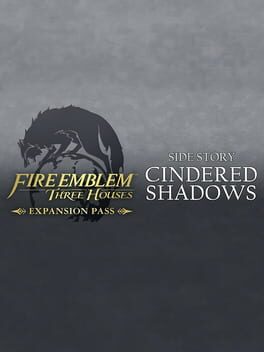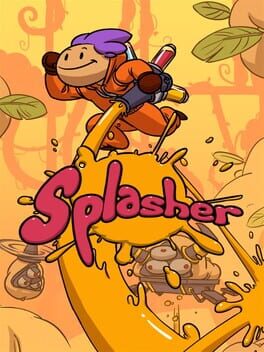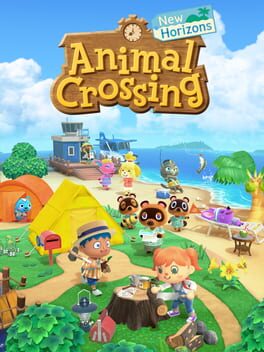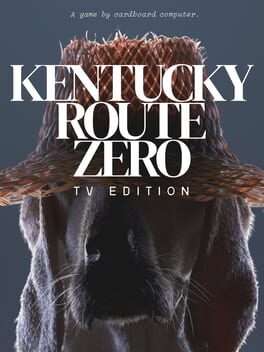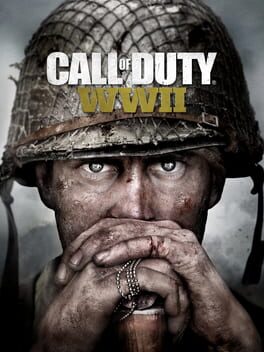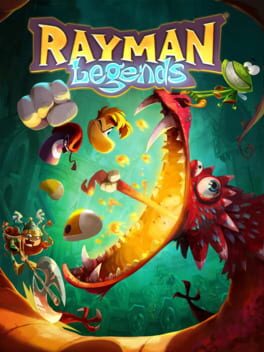chortles
2015
Yakuza 0 made me believe in the power of story driven, dialogue heavy games again. I can't remember the last time I found a game with 'traditional' storytelling (read: one which emulates film) so riveting from start to finish, and so cleverly conceived and arranged at that. A key to that is its great , personable writing, of course, but with this many cutscenes (+ the more frequent, less animated dialogue scenes) it helps that they're actually directed in some meaningful way, always finding interesting shots or camera moves to portray a scene, or zooming in perfectly to amplify its most comedic moments. A small thing, but we're always engaged because of it.
Yakuza 0 would already be an amazing game for that alone, and that's without even mentioning the other couple of games that happen to be crammed in there too, some being the most delightful of surprises (Cabaret Czar stans, hello); or its world, ready-made to woo you with its charm and personality, and inexplicably suck away hours on end; or its tonal mastery, oscillating between compelling melodrama and absurd comedy seamlessly.
It's all here, fellas. A game for the ages.
Yakuza 0 would already be an amazing game for that alone, and that's without even mentioning the other couple of games that happen to be crammed in there too, some being the most delightful of surprises (Cabaret Czar stans, hello); or its world, ready-made to woo you with its charm and personality, and inexplicably suck away hours on end; or its tonal mastery, oscillating between compelling melodrama and absurd comedy seamlessly.
It's all here, fellas. A game for the ages.
2019
Bought this on a whim looking to round out a late night with a no nonsense, vibes-only kind of game. Happy to report that the vibes are here, chief. A late night treat if there ever was one: this has such a wonderful, bouncy synth pop soundtrack that seamlessly meshes with its levels, full throttle joyrides which perfectly balance simple on-rails mechanics with complex, frequently dazzling visual flair. Sometimes I wished its controls were a little tighter, or that the game was automatically set to play straight through each song as an album would, but do those really matter in the end? With such an inspired art style as the canvas for such earworm tracks, it’s hard to be too bothered. Such a refreshing experience.
The rare game in which its greatest strength—seamless coherence of gameplay and theme—is also its Achilles' heel. For a game which aims to capture the ennui most of us feel at some point in our formative teenage years, it's refreshing to witness just how fully it commits to that vision. You'll wander around listlessly after school, looking for anything to occupy your time, get in fights with kids from rival schools and have life chats with your boys, all while trying to keep on the straight and narrow as you finish out your last semester of high school. What could be better?
Many of those elements automatically trigger my brain's pleasure center—and they're even propped up to the next level by some seriously strong writing and fantastic lo-fi aesthetics—but as a whole, it just feels a bit too aimless for me to fully embrace. The vibes alone would be enough to carry most people through this game for awhile (make no mistake: this thing VIBES for days), but I think the story is missing just that tiny bit of propulsion needed to make the day-to-day feel less like a chore. My last week (in game time) before putting it down really started to feel like I was going through the motions; not even playing anymore, just doing the things Ringo should be doing day-in, day-out, waiting for something to happen. But nothing did. Brilliant realization of its themes or just flawed game design? You tell me.
I hope Yeo doesn't stop making games though. There are (rightfully) so many people that love the unique flavor of The friends of Ringo Ishikawa, and I wish all of its ambitious pieces clicked into place more smoothly for me. I may not have felt fully satisfied by it, but it did refresh me in ways I couldn't have expected.
Many of those elements automatically trigger my brain's pleasure center—and they're even propped up to the next level by some seriously strong writing and fantastic lo-fi aesthetics—but as a whole, it just feels a bit too aimless for me to fully embrace. The vibes alone would be enough to carry most people through this game for awhile (make no mistake: this thing VIBES for days), but I think the story is missing just that tiny bit of propulsion needed to make the day-to-day feel less like a chore. My last week (in game time) before putting it down really started to feel like I was going through the motions; not even playing anymore, just doing the things Ringo should be doing day-in, day-out, waiting for something to happen. But nothing did. Brilliant realization of its themes or just flawed game design? You tell me.
I hope Yeo doesn't stop making games though. There are (rightfully) so many people that love the unique flavor of The friends of Ringo Ishikawa, and I wish all of its ambitious pieces clicked into place more smoothly for me. I may not have felt fully satisfied by it, but it did refresh me in ways I couldn't have expected.
I'm probably biased towards Uncharted, but I just feel like this doesn't really have much to offer that hasn't already been covered better by those games. It apes so much from that series, and its few deviations are not very meaningful: there's more open areas to explore, which is a welcome change to linear structure, but there's nothing actually of interest to do in them to justify their existence, the story and characterization is taken much more seriously but remains wholly unengaging, and weapon and skill upgrades feel like pointless fluff.
A step up from the previous entry at least, but doesn't rise (!!) above just being a fun romp.
A step up from the previous entry at least, but doesn't rise (!!) above just being a fun romp.
Capcom made a bold move to swap the over-the-shoulder action they had spent the last decade iterating on for the lumbering first-person perspective employed here, but hoo boy did it pay off. Resident Evil 7 is a shock to the system, a reminder of how scary survival horror can be when the focus is placed on atmosphere and helpless desperation above all else. I'm fully used to the campy B-movie vibes of other entries in the series, so to see this one riff on completely different horror reference points (Texas Chainsaw Massacre, found footage films etc) with a more naturalistic approach is so refreshing. Make no mistake, this is still Resident Evil through and through—just seen through a different lens, dunked in shit and left to sit in its squalor.
I loved just about everything served up here and found it so, so compelling through to the end (yes, even the maligned third act, though the time spent on the Baker estate is inarguably stronger). It's rare for me to railroad games from start to finish like I did here, but this kept me locked in its chokehold for a couple of days until it was over. The best of the Resident Evil series always find a way to do me like that, and this experience made me realize how much I treasure these games for it.
I loved just about everything served up here and found it so, so compelling through to the end (yes, even the maligned third act, though the time spent on the Baker estate is inarguably stronger). It's rare for me to railroad games from start to finish like I did here, but this kept me locked in its chokehold for a couple of days until it was over. The best of the Resident Evil series always find a way to do me like that, and this experience made me realize how much I treasure these games for it.
Takes two of the base game's most glaring flaws—homogeneous map design and somewhat limp game difficulty—and completely turns them on their head. Cindered Shadows hands you a small group of characters from the off and crafts specific encounters around the makeup of that team, forcing you to move through each level very carefully and utilize both individual character abilities/strengths and collective synergies in order to make it through. There have been a lot of great maps in the series, but considering the freedom you are typically given in these games to build out your team as you see fit, it's rare to see this degree of specificity in level design, and so refreshing at that.
The scenarios and story are wild, the maps huge and the gameplay tense as ever—some of the toughest Fire Emblem maps I've played are packed in here (Ch 6...), and I'm here for it. The new characters and classes that transfer over to the main game add just enough spice to whet my appetite for another playthrough too. Really couldn't have asked for much more with this one.
The scenarios and story are wild, the maps huge and the gameplay tense as ever—some of the toughest Fire Emblem maps I've played are packed in here (Ch 6...), and I'm here for it. The new characters and classes that transfer over to the main game add just enough spice to whet my appetite for another playthrough too. Really couldn't have asked for much more with this one.
2017
continually bowled over by this game into NG+. how humbling it is to realize that I was basically just Not Good until Isshin forced me to truly start learning the game at the end of my first run, and that it would not be until my second rodeo that I could actually begin to apply that burgeoning mastery and deepen my understanding of how the game works. I'm sure many will lament the lack of character builds that made the Souls series so easy to return multiple times, but I found the additional bandwidth to explore the many different shinobi arts and prosthetics deeply enriched my experience, creating a wealth of approaches to combat scenarios that I had previously only tackled in ways that fit my comfort zone.
I feel I can say with more conviction now that this is one of the greatest action games of all time, and one that boasts what is perhaps the best, most finely tuned combat system in any game. just impeccable on all fronts.
I feel I can say with more conviction now that this is one of the greatest action games of all time, and one that boasts what is perhaps the best, most finely tuned combat system in any game. just impeccable on all fronts.
2019
Outer Wilds is the only game I can think of where within its first moments, I knew I was in for something very, very special without really understanding why. The title screen is already so inviting, with its gentle acoustic glow fading in over a collage of shimmering stars. The game opens, I wake up on my back, looking up into the sky to see something explode in the distant orbit of a giant, green planet deep in space, and my imagination is immediately captured. I feel an intangible warmth as I speak to my fellow Hearthians and wander our village, a sense of wonder and anticipation as I walk through our peoples' museum, learning about things that I realize I will inevitably have to face or utilize in the adventures ahead. All this before even seeing my ship, let alone blasting off with it into the far reaches of space.
The expectations and tone of Outer Wilds are set up pitch perfectly in this opening. On the whole, the game captures the innate desire we all have to learn more, to reach out for what's next, even if we have no idea what it is we are searching for or why we seek it. It's the only thing Outer Wilds relies on to lead players forward. There are no objectives or goals, no waypoints to show you where to go next; there only those which you create for yourself. What drives us forward is the need to understand the world(s) around us, or at least attempt to understand. Is there a more human desire than that?
Outer Wilds is a masterpiece for its many balances: of warmth and intimacy with the melancholic loneliness of space; a constant sense of wonder with an equally constant fear of the unknown; its charming, colorful art style with its hard, scientific approach; its reverence for the teachings of both classical and quantum physics; its personal, micro-level character stories set against the fate of the universe. The list goes on. And that's without even mentioning the game's emotional linchpin: Andrew Prahlow's incredible score, a healthy mix of folk, ambient and post-rock that is a delicate tight-wire act in and of itself, managing to capture both the vastness of space and the intimate glow of a campfire without compromise.
Whatever feelings Outer Wilds brought out of me in its opening moments were only further heightened and more deeply understood as I began unraveling the mysteries of its clockwork solar system, spiraling faster and faster towards an ending that left me in awe of everything that came before it and soon yearning for other experiences that could fill the black hole that the game's sudden absence left in place of my heart. Outer Wilds is not only a perfect game, but also one of the medium's purest expressions of its most inspiring possibilities. If only I could breathe out a sigh of relief and wake up on Timber Hearth for the first time again.
The expectations and tone of Outer Wilds are set up pitch perfectly in this opening. On the whole, the game captures the innate desire we all have to learn more, to reach out for what's next, even if we have no idea what it is we are searching for or why we seek it. It's the only thing Outer Wilds relies on to lead players forward. There are no objectives or goals, no waypoints to show you where to go next; there only those which you create for yourself. What drives us forward is the need to understand the world(s) around us, or at least attempt to understand. Is there a more human desire than that?
Outer Wilds is a masterpiece for its many balances: of warmth and intimacy with the melancholic loneliness of space; a constant sense of wonder with an equally constant fear of the unknown; its charming, colorful art style with its hard, scientific approach; its reverence for the teachings of both classical and quantum physics; its personal, micro-level character stories set against the fate of the universe. The list goes on. And that's without even mentioning the game's emotional linchpin: Andrew Prahlow's incredible score, a healthy mix of folk, ambient and post-rock that is a delicate tight-wire act in and of itself, managing to capture both the vastness of space and the intimate glow of a campfire without compromise.
Whatever feelings Outer Wilds brought out of me in its opening moments were only further heightened and more deeply understood as I began unraveling the mysteries of its clockwork solar system, spiraling faster and faster towards an ending that left me in awe of everything that came before it and soon yearning for other experiences that could fill the black hole that the game's sudden absence left in place of my heart. Outer Wilds is not only a perfect game, but also one of the medium's purest expressions of its most inspiring possibilities. If only I could breathe out a sigh of relief and wake up on Timber Hearth for the first time again.
2018
If for nothing else, this has to be commended for so thoughtfully expanding on Spider-Man 2's legacy. Even as someone who doesn't care much for Marvel properties and feels constantly disaffected by Disney using them as a vessel to basically homogenize mainstream cinema, all it took to draw me into this is the promise of some great webslinging. It's clear that this was a primary focus of the devs: it's fluid, flashy, responsive, and it makes slipping into the suit and traversing around Spidey's NYC feel just as joyful as it should.
Unfortunately it's the world you swing around in that finds itself lacking, another of many victims to the major pitfalls of AAA open world design. Spider-Man is host to the endless barrage of meaningless side-activities that has become all the rage in open world games (as well as something of an ironic signifier that your game world just doesn't have that much depth). I'd say they should have scrapped this structure entirely and crafted a tighter, more narrowly focused experience, but that would also sacrifice the main case for making the swinging so good... tough tightrope, but either way, Insomniac do well enough with the toolkit they have chosen. This game is dazzling to watch in motion, the combat, despite taking a little too many notes from the Arkham games, feels great, its story and characterization is stock standard comic book fare (but well done) and the pacing feels pretty good other than a few forced stealth and hacking segments that are hard to take seriously. The game's true success though is its effortless embodiment of both Spider-Man and Peter Parker, and for that it's clear to see why it has won so many adoring fans. For me, it's very fun and compulsively playable, but inconsequential; in the end, I just wish it was brave enough to rise above convention.
Unfortunately it's the world you swing around in that finds itself lacking, another of many victims to the major pitfalls of AAA open world design. Spider-Man is host to the endless barrage of meaningless side-activities that has become all the rage in open world games (as well as something of an ironic signifier that your game world just doesn't have that much depth). I'd say they should have scrapped this structure entirely and crafted a tighter, more narrowly focused experience, but that would also sacrifice the main case for making the swinging so good... tough tightrope, but either way, Insomniac do well enough with the toolkit they have chosen. This game is dazzling to watch in motion, the combat, despite taking a little too many notes from the Arkham games, feels great, its story and characterization is stock standard comic book fare (but well done) and the pacing feels pretty good other than a few forced stealth and hacking segments that are hard to take seriously. The game's true success though is its effortless embodiment of both Spider-Man and Peter Parker, and for that it's clear to see why it has won so many adoring fans. For me, it's very fun and compulsively playable, but inconsequential; in the end, I just wish it was brave enough to rise above convention.
It can't be overstated how perfectly timed this game's release was—right as the world was beginning to lock down, people could escape and dive into the always pleasant world of Animal Crossing to replace the sort of normalcy in life that was beginning to drift away. I was hooked from the start and delighted by everything New Horizons was giving me: a daily excuse to relax, relish in its immense charm and carry out menial tasks all focused around building my town up. The conceit of starting on a deserted island made my head spin, with the potential to make the place truly my own, and had me wondering if the series would finally truly sink its hooks into me like it has with so many others.
Little did I know I would drop the game a couple of weeks to a month later, though, with no intentions to return. Honestly I still don't really know why—probably some combination of lacking the time and drive needed to make my town truly blossom in conjunction with the classic Nintendo moves of making so many exceptionally baffling UI and gameplay choices that makes progression feel so mind-numbingly repetitive. Maybe I'll pick it up again, and maybe not, but that's ok. The first weeks with this game were blissful times that I wouldn't trade it for anything, and most of my satisfaction related to this game now comes in the genuine awe of what people putting in massive amounts of time and effort are able to do with it.
Little did I know I would drop the game a couple of weeks to a month later, though, with no intentions to return. Honestly I still don't really know why—probably some combination of lacking the time and drive needed to make my town truly blossom in conjunction with the classic Nintendo moves of making so many exceptionally baffling UI and gameplay choices that makes progression feel so mind-numbingly repetitive. Maybe I'll pick it up again, and maybe not, but that's ok. The first weeks with this game were blissful times that I wouldn't trade it for anything, and most of my satisfaction related to this game now comes in the genuine awe of what people putting in massive amounts of time and effort are able to do with it.
What impresses me most about Kentucky Route Zero is that despite how liberally it borrows many of its best traits from other mediums, it so clearly could only work as a game. In most games, the camera is an object to manipulate and control, a tool to serve the gameplay above all else. KRZ's use of camera takes more cues from films and cinematic technique than the vast majority of its counterparts, where its slow pans, layered zooms and stark scene transitions are calculated, artistic choices, left out of the players' hands and implemented to elicit specific emotional responses or entrench us deeper in the thick atmosphere of its world. The writing is at a strong literary level which doesn't overcome, but is simply not even concerned with the trap many games fall into of using dialogue as exposition crutches to push their stories further. Plot is secondary to mood and atmosphere in the story of KRZ, with its writers placing all focus on novelistic passages that emphasize detail and imagery, meshing well with the mysterious, unexplainable happenings in the world that are presented audiovisually.
What makes it so vital as specifically a game though? Not an easy question to answer, and KRZ is so elusive and oblique that I imagine it means a lot of things to a lot of people. To me, it's about a few key choices related to interaction—the way you occupy multiple characters, write your own story with well-constructed dialogue choices (another subversion here in that again, this informs the way the story feels moment to moment, rather than giving us any actual agency over how it plays out) and immerses you into its most surreal qualities. There's a wonderfully dense thematic tapestry that is carefully weaved throughout the five acts as well; the throughline that sticks out most as I write this is the lack of control we have over our lives and our situations, the way we don't understand so many things swirling around us, beyond us, but often just accept what we're given with a sigh, moving forward, not looking back. Aren't games, at their most basic level, ultimately about control and pushing forward to what lies ahead?
What makes it so vital as specifically a game though? Not an easy question to answer, and KRZ is so elusive and oblique that I imagine it means a lot of things to a lot of people. To me, it's about a few key choices related to interaction—the way you occupy multiple characters, write your own story with well-constructed dialogue choices (another subversion here in that again, this informs the way the story feels moment to moment, rather than giving us any actual agency over how it plays out) and immerses you into its most surreal qualities. There's a wonderfully dense thematic tapestry that is carefully weaved throughout the five acts as well; the throughline that sticks out most as I write this is the lack of control we have over our lives and our situations, the way we don't understand so many things swirling around us, beyond us, but often just accept what we're given with a sigh, moving forward, not looking back. Aren't games, at their most basic level, ultimately about control and pushing forward to what lies ahead?
2017
I've been tapped out of the Call of Duty franchise for most of the past decade and it seems I shouldn't have even let the morbid curiosity of its PS+ freebie status draw me back in.
It's staggering the how much the devs have continued to milk this franchise without offering any meaningful updates to the core experience. What was fun in the halcyon days of Call of Duty 4 (albeit to a 14 year old me) just feels utterly rote and stale now. While the campaign is well crafted enough (aside from setpieces—why are they so damn stiff and clunky?) and the mechanics behind it are tight by virtue of being so tried and true... it's just not interesting anymore, guys. Tack on the story, which the writers and voice actors have approached with a level of such self-serious bro sentimentality that even Zack Snyder would be taken aback, and the experience becomes difficult to appreciate even ironically (a true shame).
The multiplayer is the same as it's always been other than that your people can dance and say dumbass one-liners in the lobby. Just about sums up the evolution of online gaming culture at least.
It's staggering the how much the devs have continued to milk this franchise without offering any meaningful updates to the core experience. What was fun in the halcyon days of Call of Duty 4 (albeit to a 14 year old me) just feels utterly rote and stale now. While the campaign is well crafted enough (aside from setpieces—why are they so damn stiff and clunky?) and the mechanics behind it are tight by virtue of being so tried and true... it's just not interesting anymore, guys. Tack on the story, which the writers and voice actors have approached with a level of such self-serious bro sentimentality that even Zack Snyder would be taken aback, and the experience becomes difficult to appreciate even ironically (a true shame).
The multiplayer is the same as it's always been other than that your people can dance and say dumbass one-liners in the lobby. Just about sums up the evolution of online gaming culture at least.
2013
Not as precise a platformer as your Super Meat Boys or Celestes, but it doesn't need to be; Rayman Legends ignores the focus that subset of the genre places on mastering air-tight core mechanics in favor of having players grapple with the vast array of gameplay ideas thrown at the wall at any given moment through varied, imaginative level design. The sheer number of micro mechanics created this way, which in some cases are already left behind after one or two levels to move on to the next idea, is honestly staggering and gives the game a fresh, ever changing quality throughout that is difficult to rival.
A delight to play through, and that feeling is captured no better than by the sublime music levels that close out each world. These aren't just celebrations of your own achievements in the game, they're celebrations of the unadulterated joy that platformers—or any game, really—can bring us in those rare moments where everything locks into place and feels just right.
A delight to play through, and that feeling is captured no better than by the sublime music levels that close out each world. These aren't just celebrations of your own achievements in the game, they're celebrations of the unadulterated joy that platformers—or any game, really—can bring us in those rare moments where everything locks into place and feels just right.

